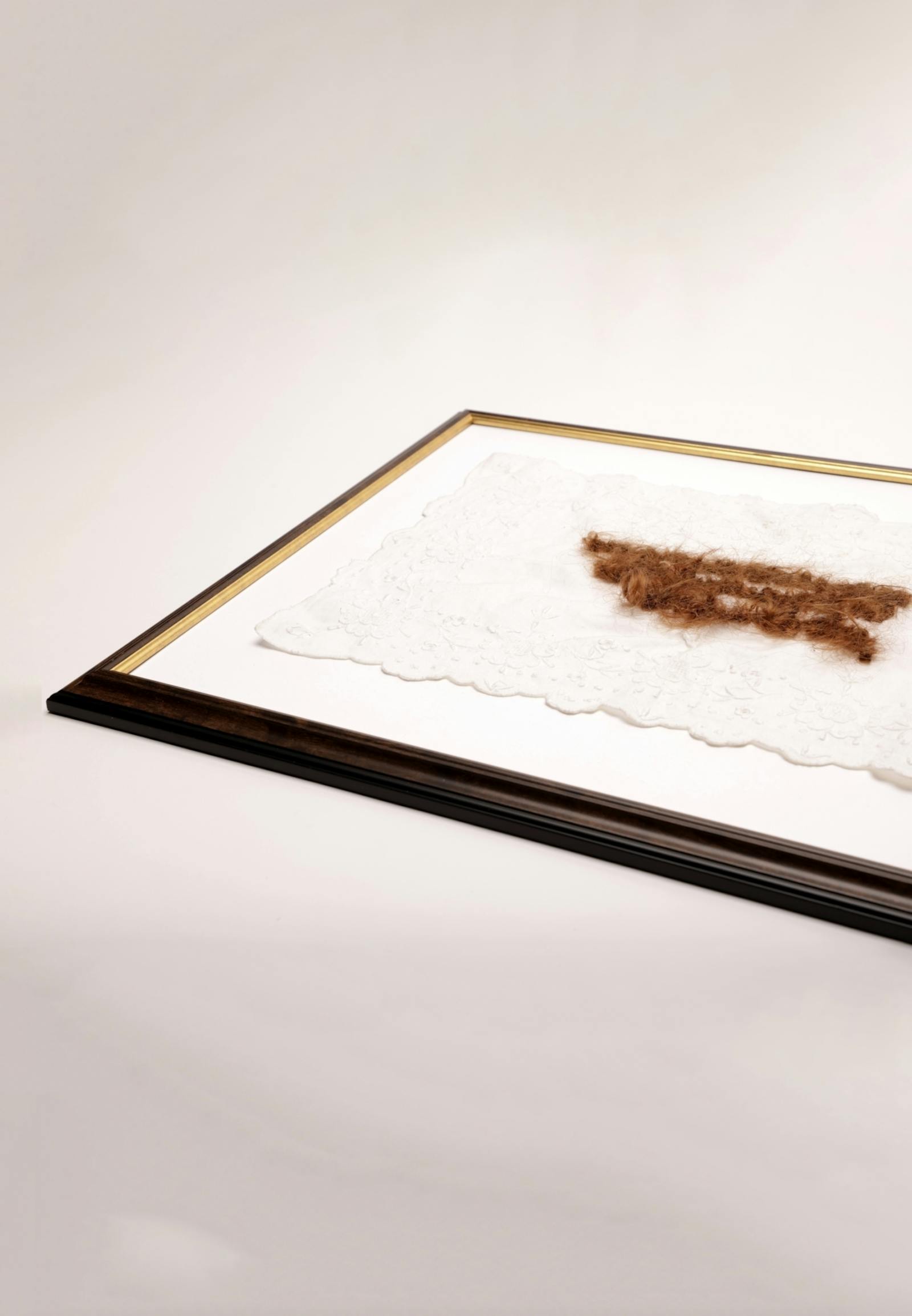Helen Emily Davy
Peculiar Knowledge: Archive, Affect, and Ambivalence in ‘Third Generation’ Artistic Practice
Summary
Helen Emily Davy (b. 1996) is an artist from Manchester, UK. She is a graduate of the Fine Art – Painting and Printmaking BA(Hons) programme at the Glasgow School of Art, and the Art and Science MA programme at the Universität für angewandte Kunst, Vienna. She works in a diverse range of media including installation, printmaking, collage, stained glass, embroidery, and text, often incorporating archival material to examine questions related to subjectivity and the body. Her past research and artistic work has dealt with topics such as Anatomical Venuses, early photography of hysteric patients, and Victorian practice(s) of Spiritualism.
Since 2020, she has been engaged in a collaborative project with the Austrian artist Katharina Mayrhofer entitled The Table That Doesn’t Belong To Us. At the heart of this project is a table which once belonged to Davy’s ancestors, the Jewish Wertheimer sisters. Following the Anschluss (the annexation of Austria by the Third Reich), the table came into the possession of Mayrhofer’s ancestors, who were committed NSDAP (Nazi) members. The project has developed into the exhibition Looted: Two Families, Nazi Theft and the Search for Restitution, co-curated by Davy and Mayrhofer, which tells the story of their two families and their project of artistic restitution many decades later. The exhibition is on display at the Wiener Holocaust Library, London from 16th July to 10th October 2025.
As an exhibition, Looted examines how descendants of victims of the Nazi era and of National Socialists confront a shared past. The Wertheimers’ table, an ordinary object with an extraordinary history, unearths difficult questions about memory, responsibility, and justice. Mayrhofer and Davy present Looted as a lens by which to understand the past, both public and private, and our responsibilities to it and each other in the present.
Davy's work on the MRes programme, including the thesis Peculiar Knowledge: Archive, Affect, and Ambivalence in ‘Third Generation’ Artistic Practice, has been undertaken concurrently with the research and development of Looted's curatorial narrative and content.
Abstract
This thesis explores research into family narratives related to the Holocaust and the Nazi era and the processes and affective ambivalences involved in displaying this research publicly. The first chapter Correspondence examines Davy's archival research into her family’s history and the process of uncovering knowledge in simultaneous intellectual and embodied manners. The second chapter Comb explores trans-temporal communication as an artistic method and the generational and gendered aspects of restorative artistic practice. The third chapter Conflict critiques the use and utility of the term ‘Third Generation artists’ in the current socio-political climate, and what responsibilities and expectations are implicit in this term. The fourth chapter Disclosure analyses the ethical considerations implicit in the public display of family narratives, and the positionality of the artist-curator. Woven through these chapters are Davy's co-curation of an artistic research exhibition Looted: Two Families, Nazi Theft and the Search for Restitution at the Wiener Holocaust Library, and the creation of new artistic work responding to her affective experiences developing this exhibition.
Abridged thesis
Available here is the abstract, prologue, and introduction of Davy's MRes thesis. Please contact the artist for the full text.
'Looted: Two Families, Nazi Theft and the Search for Restitution' at the Wiener Holocaust Library
Installation views, co-curated by Helen Emily Davy and Katharina Mayrhofer. Exhibition design by Bivouac.

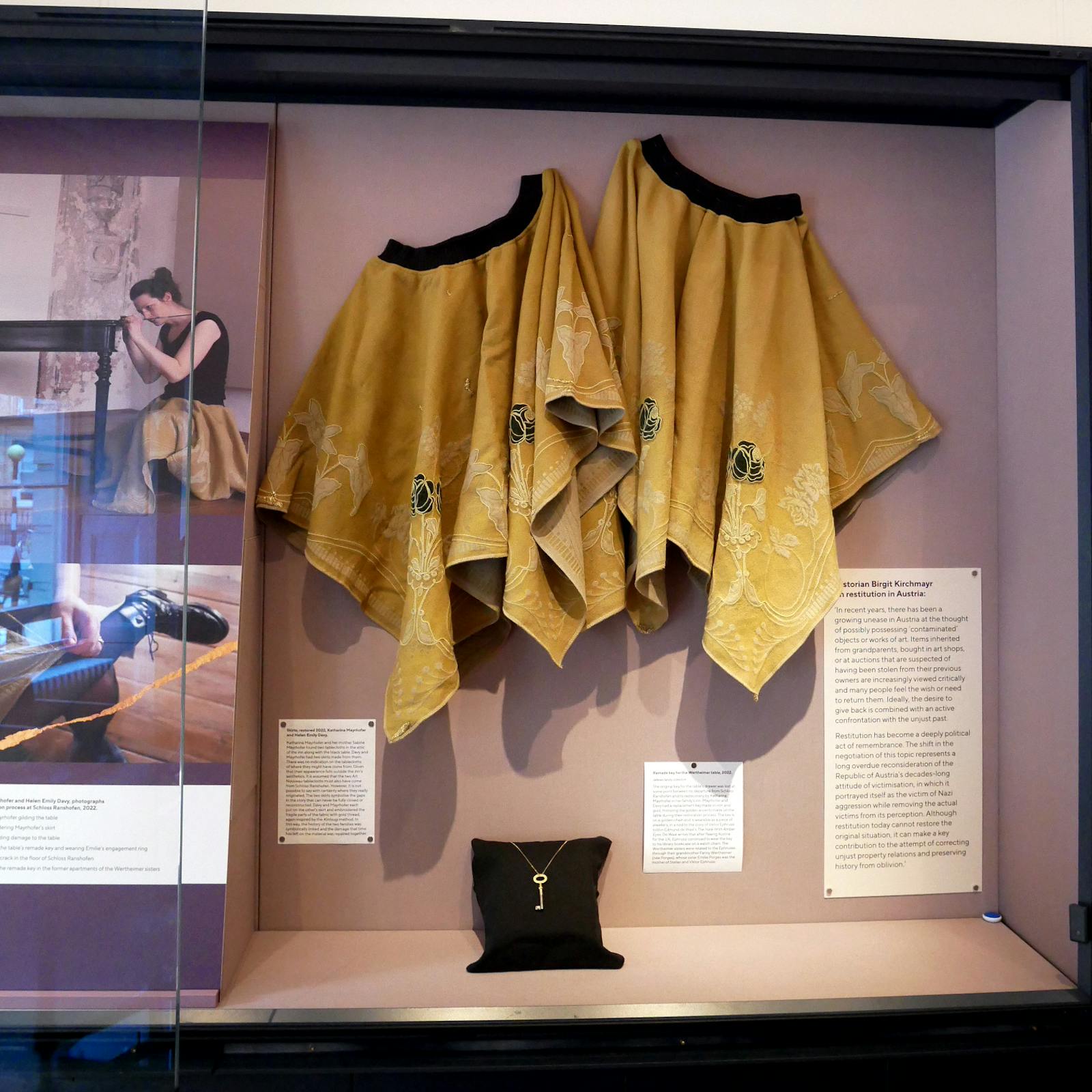
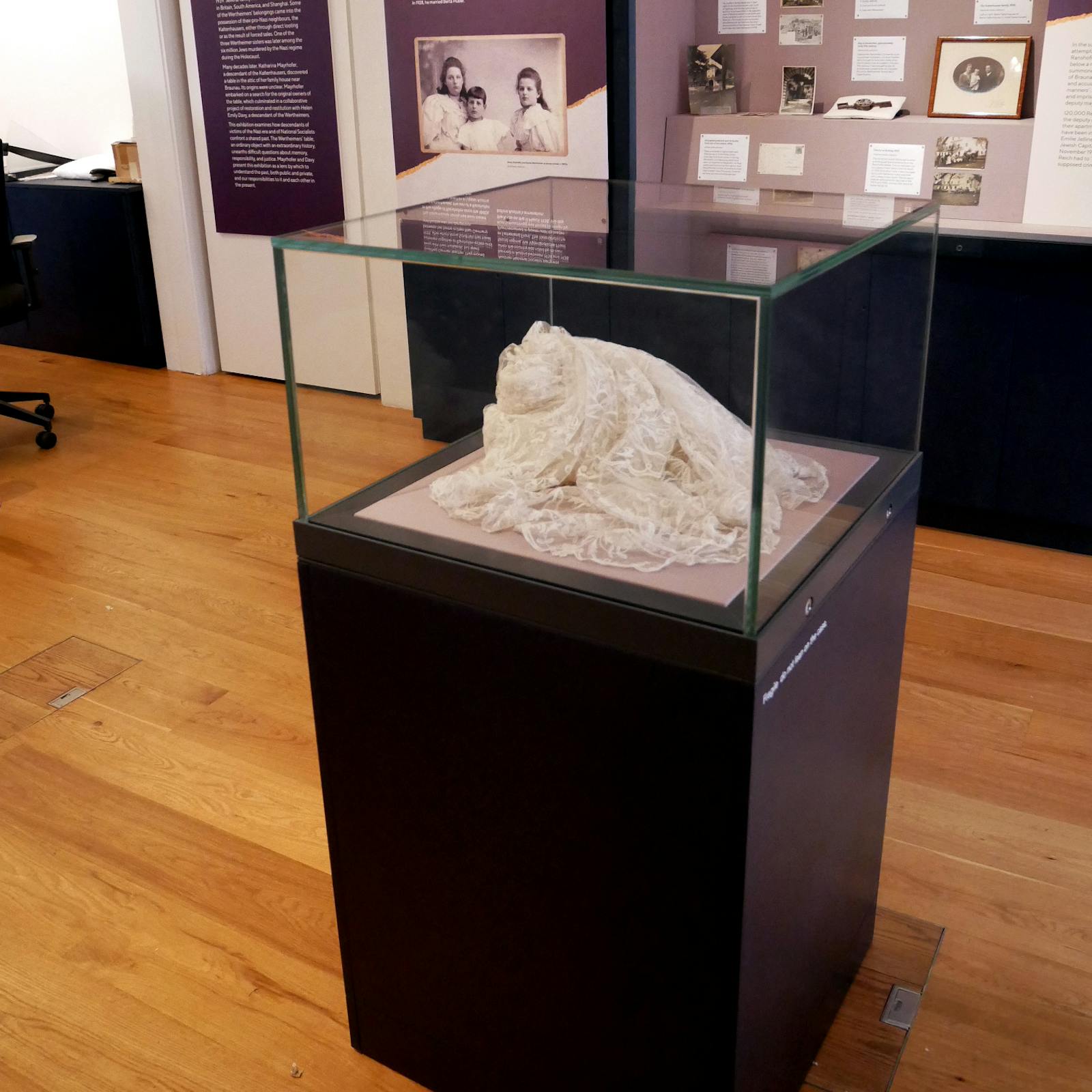
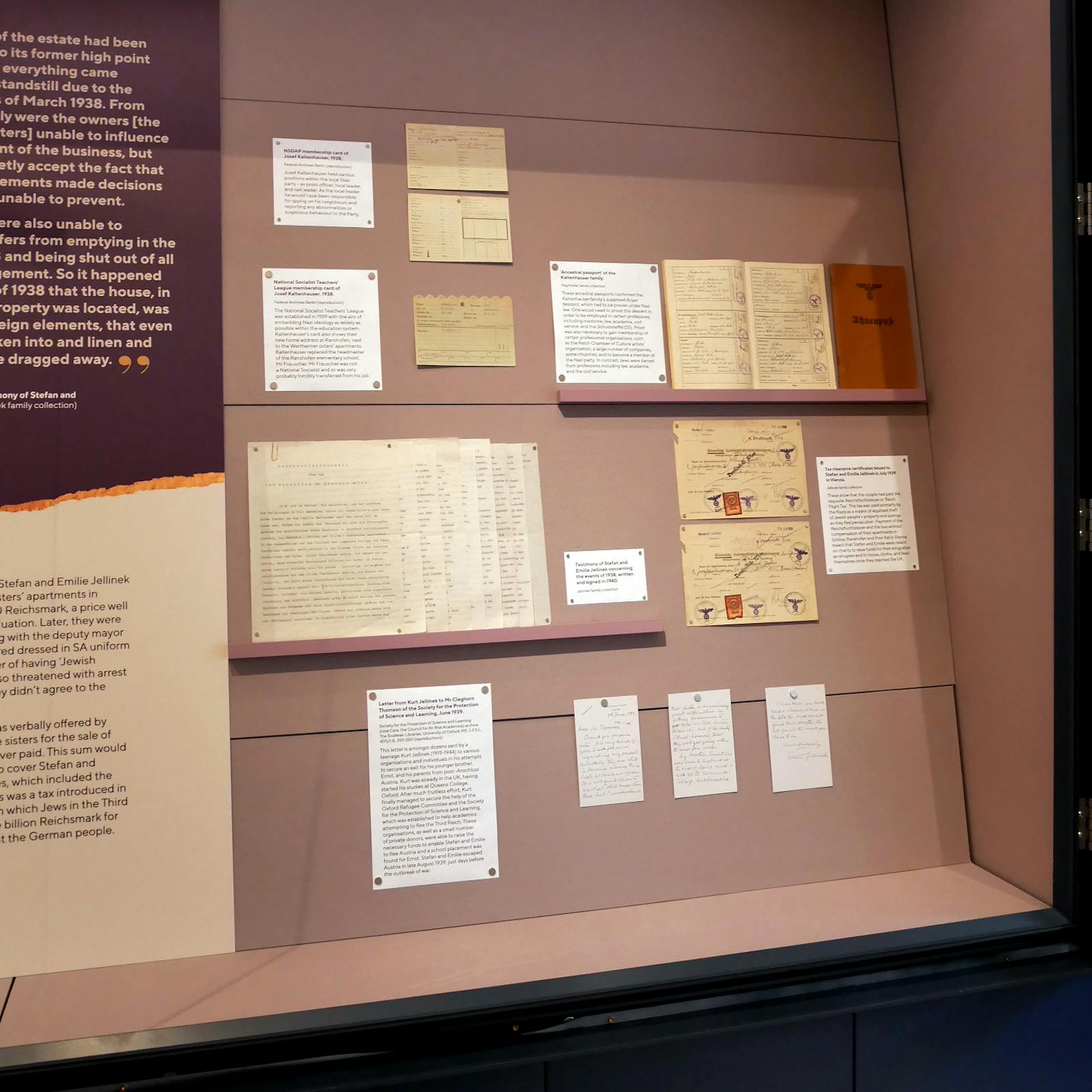
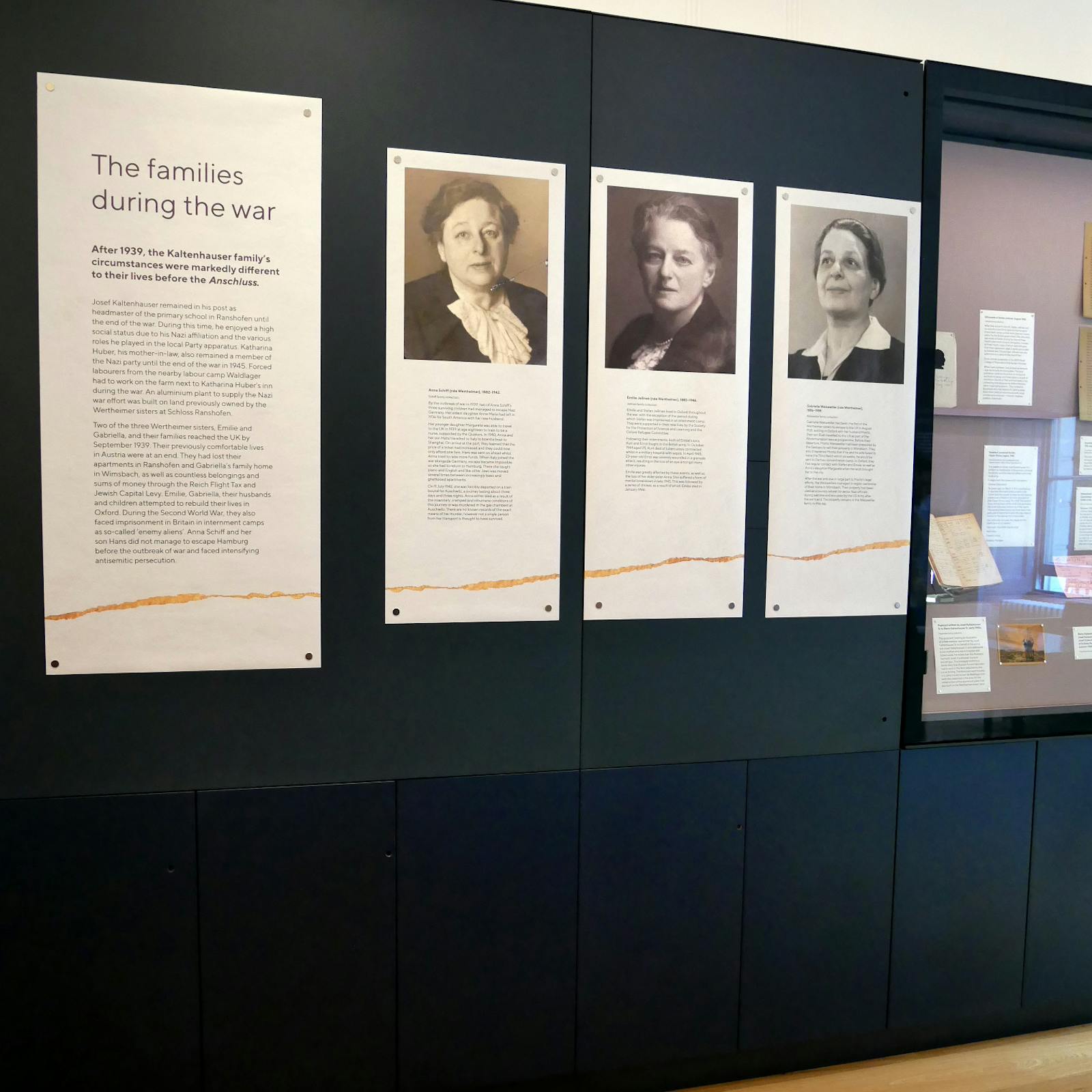
'Interstices' series
Interstitial haikus I-VIII, letterpress on Fabriano rosaspina paper.







‘Gedenke immer meiner, wie ich deiner auch imer gedenken werde.’ (verso)
Artist's hair on vintage textile.
